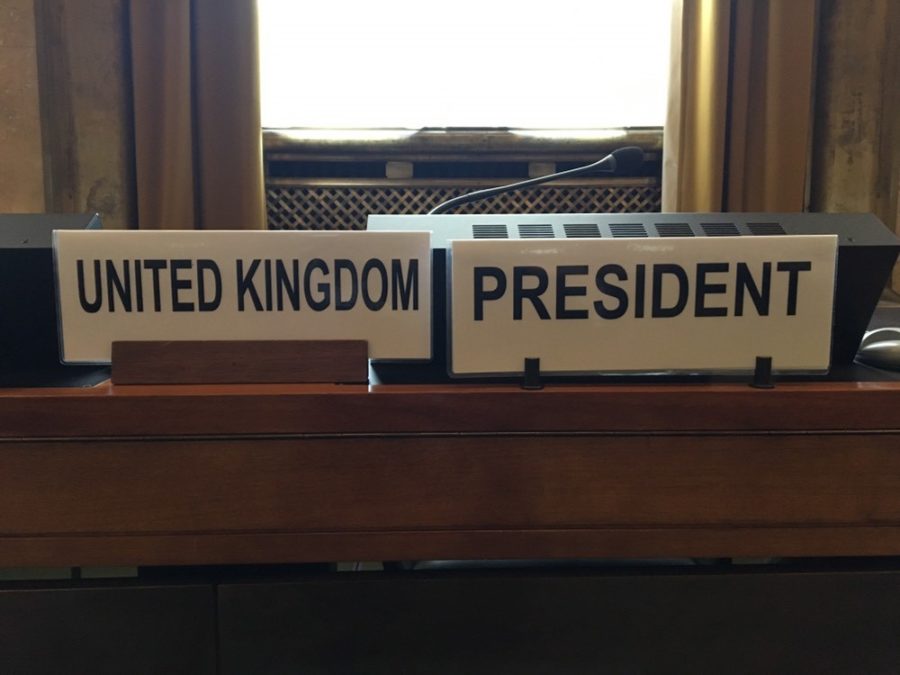19th February 2019 Geneva, Switzerland
Disarmament blog: Taking on the Presidency of the Conference on Disarmament

The Presidency of the Conference on Disarmament rotates alphabetically amongst its members, who each take a turn for four weeks while the Conference is in session. That means that, over the 24 weeks of each year’s session, six countries are asked to take the chair. This week, the UK picked up the baton from Ukraine as the second Presidency of 2019.
It’s our first time in the chair since 2008. My predecessor in this job, John Duncan, took up the Presidency on 26 May, though his deputy Fiona Paterson stood in for him at the first plenary as he was still in Dublin at the conference negotiating the Convention on Cluster Munitions, which had overrun. (The draft CCM was adopted two days later, on 28 May.) I spent a bit of time last week reading the records of those meetings. The idea of a ‘P6’, a unified platform across the six CD Presidencies for the year, was new. The debate in those four plenaries, and from what I infer also in the informal consultations and negotiations going on outside the Chamber, was how to get the P6’s proposal for a Programme of Work (document CD/1840) over the line.
Fast forward to 2019, and once again the UK takes up the chair against the background of extensive discussions on a draft Programme of Work. Just like in 2008, our Ukrainian predecessors have done a really excellent job trying to craft something that will command consensus. But it is clear today, just as it was then, that consensus on which negotiations are ready to launch remains out of reach.
At this morning’s plenary, I set out some plans for another way of structuring our work this year, so we don’t lose the momentum we built up in our substantive discussions last year. I’m proposing setting up a new set of Subsidiary Bodies, with a more focussed mandate to build on the work that was done in 2018.
One difference from 2008 is that this year the UK Presidency includes the annual ‘high level segment’ of the CD, a week in which Ministers from capitals are particularly welcome to come and address the Conference. We’ll have a busy few days at the beginning of next week listening to senior political perspectives on our work from around the world, which I think will be fascinating.
I’ve also been looking back even further than 2008 – to 1979, when the CD started work, and 1919, when the League of Nations was founded. In this 40th and 100th anniversary year, we have particular cause to reflect on the history and achievements of disarmament diplomacy in Geneva, and how we might build on that legacy today. My history teacher at school used to tell us, “history doesn’t repeat itself, but it often rhymes”. We’ve got some exciting plans for the next few weeks to mark these anniversaries, including an exhibition and two seminars, and I hope that we can draw some inspiration from the past as we look to the challenges of the future.
good